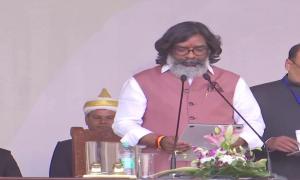Another round of Doha WTO talks ended without an agreement. The stated reason for the breakdown is the continuing divergence among the US, India and China on the special safeguard mechanisms or SSM that led to an acrimonious end of the latest eight-day Mini-Ministerial summit at Geneva.
The past few days of intensive negotiations were primarily focused on cotton, preference erosion, tropical products, bound in-quota tariff rates on industrialised country sensitive products, tariff simplification, tariff quota administration, developing country sensitive products in agriculture, flexibility for the recently-acceded members or RAMs and less-than-full-reciprocity issues in Non-Agricultural Market Access (NAMA).
But among all these, the most critical stumbling block appeared to be the farm import safeguard rules, that allow countries to protect poor farmers by imposing a tariff on certain goods in the event of a drop in prices or a surge in import volumes.
Washington said that the "safeguard clause" protecting developing nations from unrestricted imports had been set too low. India and China on the other hand, supported by the majority of G-33 developing country members, argued for a strong safeguard mechanism to protect food security and livelihoods in the event of major disruptions in global agricultural markets.
What implication does this setback have for multilateralism? In the first instance, it needs to be understood that this third-time failure to conclude the Doha Round doesn't ring the death knell for either multilateralism or the WTO.
Analysts have been warning that given the low level of preparedness of members and the limited progress in the past year, the current call for "make or break" negotiations was premature. Given the prevailing general economic uncertainty and rising fuel and food prices, it was perhaps not the best time to expect nations to take a leap of faith to further open up their markets.
Lamy's imperative in pushing for a meeting springs from the procedural requirement enshrined in the WTO Agreement that requires members to meet officially (or in other words hold a ministerial meeting) once every two years.
The problem, therefore, lies in the heightened expectations that this Ministerial meeting could have resulted in bringing a closure to the Doha Round of negotiations. I have argued earlier that given the current politico-economic realities in major trading nations, the Doha round of WTO negotiations could successfully conclude only around 2010, and countries to begin implementation of their commitments from 2011.
It is difficult to find any economic rationale for rapidly-turning-net-importer-of-food countries like India and China to be so inflexible on access to agricultural markets to bring the multilateral trade talks to a grinding halt. While the livelihood concerns of the large farming community in these countries are not to be undermined, it would appear that a deal that accorded increased market access in manufacturing and services products from these countries in return for the proposed SSM caps would have been in the larger welfare interests of these countries.
But in reality, while developing countries were called forth to make better market access offers in agriculture, commensurate market access offers in manufactured and services products of interest to these developing countries were not forthcoming.
The WTO framework is based on reciprocity. But in the present scenario, there is little prospect that industrial countries will be able to overcome their own defensive interests to deliver greater access to developing countries where they most seek it.
In the US and the EU, dismantling of the clothing quotas under the Uruguay Round has exposed domestic firms to greater competition. And because of the late implementation of the multi-fibre agreement (MFA) in the industrialised countries, the adjustment costs of the Uruguay Round commitments are yet to play out in totality.
In a situation as above, providing more access in these sectors in the Doha Round is near impossible at a time when the US and the EU are still coping with the political consequences and economic adjustments of previous policy changes.
In services, developing countries have a large stake in freer mobility of high-skill labour. But immigration policy in the industrial world has yielded only the most grudging concessions and the traditional political difficulties have been compounded by the recent economic slowdown and consequent high domestic unemployment conditions.
Thus, industrial country offers in Modes 1 and 4 of services negotiations have been at best status quo-ist. Rapid progress in technological evolution in the past half century has also made many more services remotely tradable, thus forcing even countries like the US to be wary of making liberal service sector commitments.
So what is the way forward for countries like India? What implication would this most recent collapse of trade talks have on India?
There appears to be little reason for despondency at the latest debacle of multilateral trade negotiations. The expected gains for India from the Geneva Mini-Ministerial deal was turning negative.
On the contrary, it would seem that India can gainfully use the next couple of years in strengthening regionalism insofar as these agreements are focused on reducing the non-tariff barriers and discretionary regulations that have become the real impediments to market access. Over the past year it became clear that the architecture and modalities of the Doha round negotiated in 2001 and 2004 has become outdated.
The Doha Round was more a market access round than a development round. But the age of reciprocal market access negotiations to further trade liberalisation seems to have passed.
The future direction of global trade rules and negotiations clearly point to more focused negotiations on mutual recognition/harmonisation of the disparate non-tariff regulatory requirements in Member countries.
This third ministerial collapse after Cancun and Hong Kong suggests that for attaining the desired high-ambition outcome from Doha, members need to realign the WTO negotiating agenda with the present-day realities and future imperatives rather than keep trying with the 2004 work program.
The author is Senior Fellow, ICRIER. The views are personal.









More from rediff